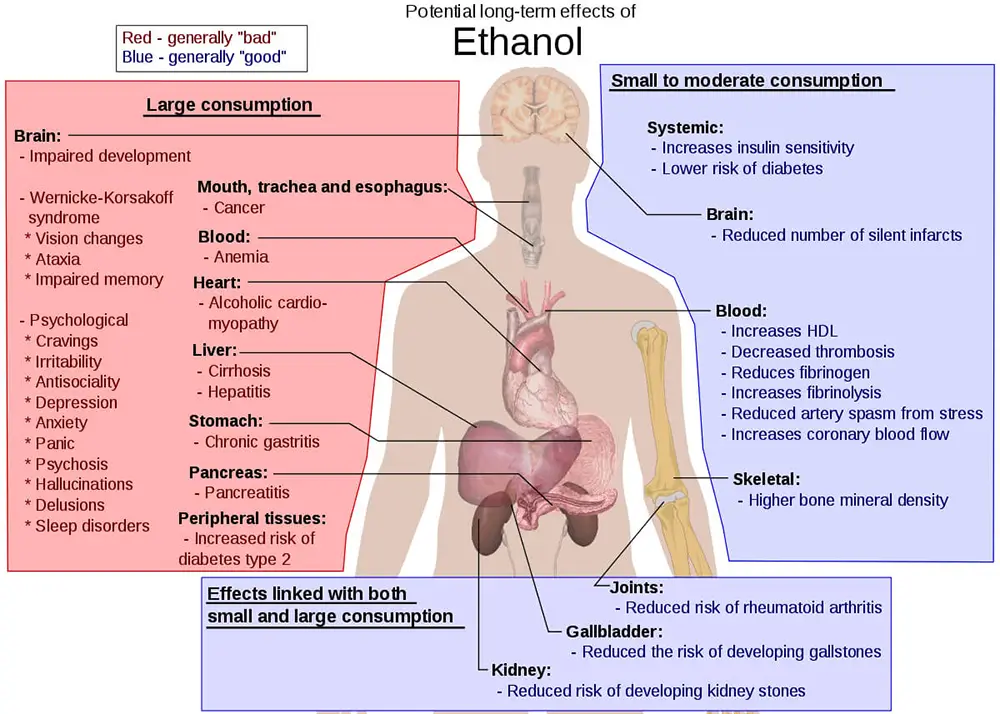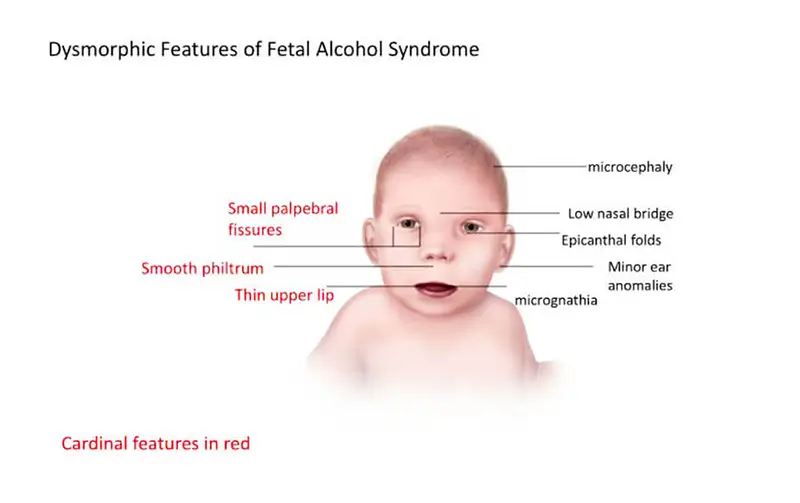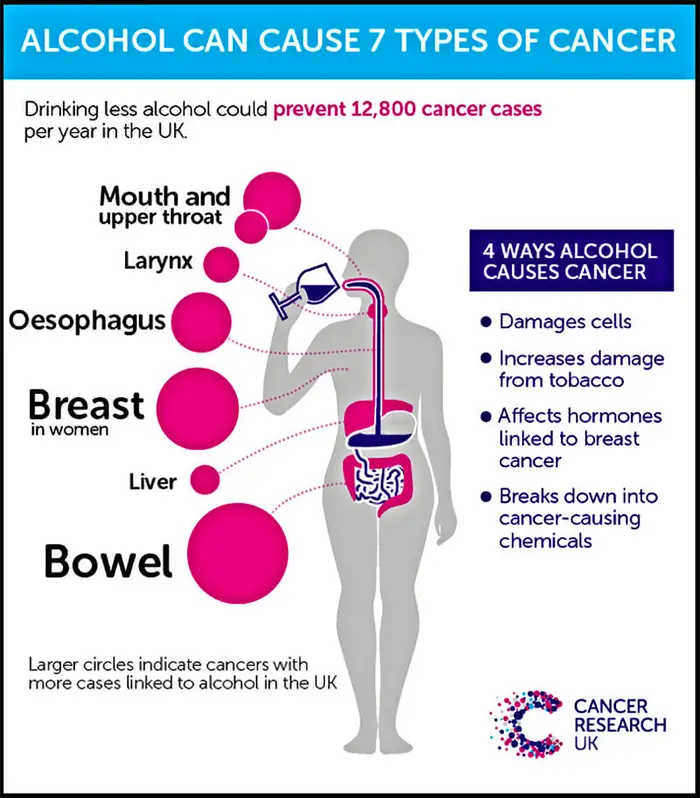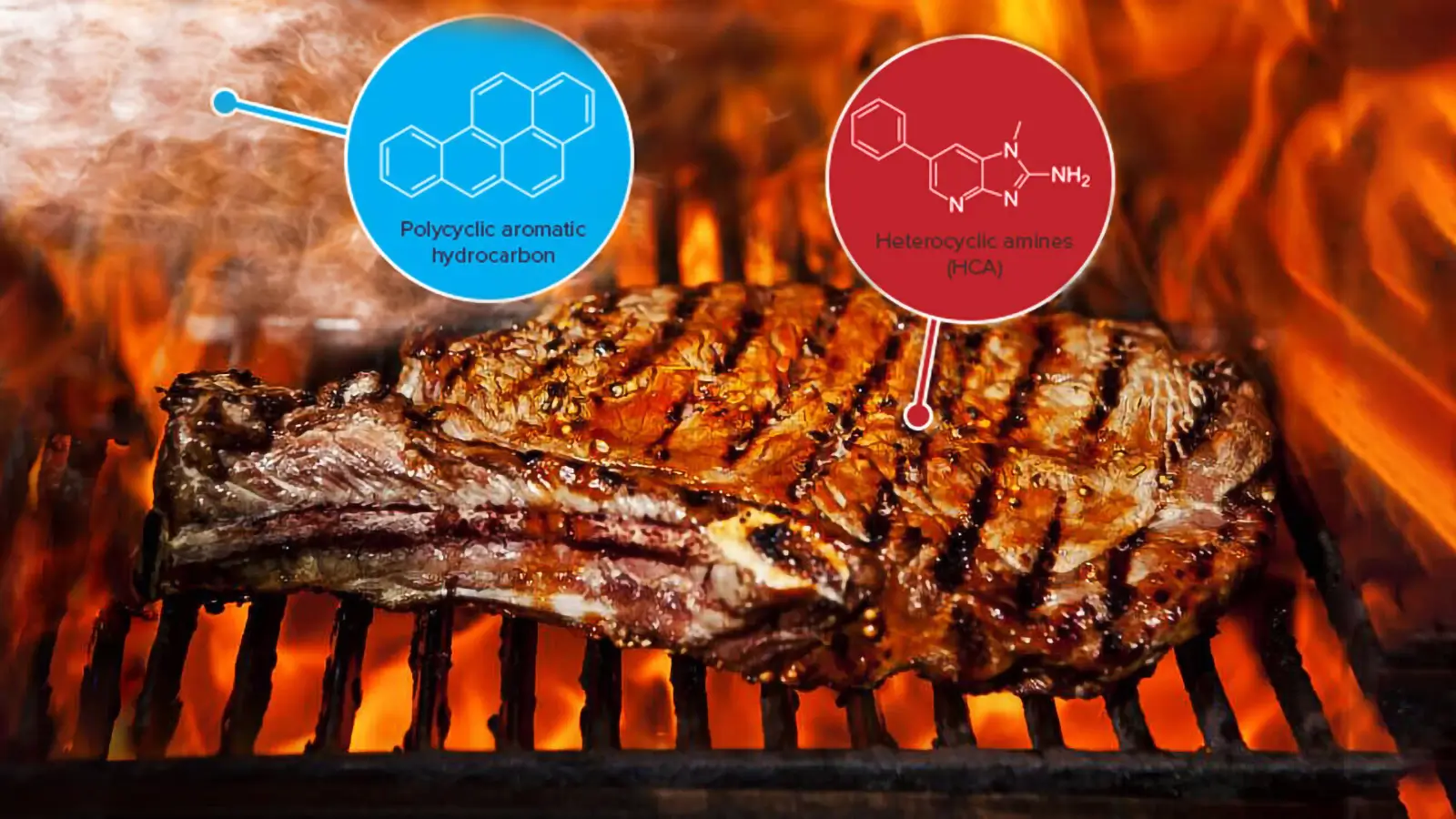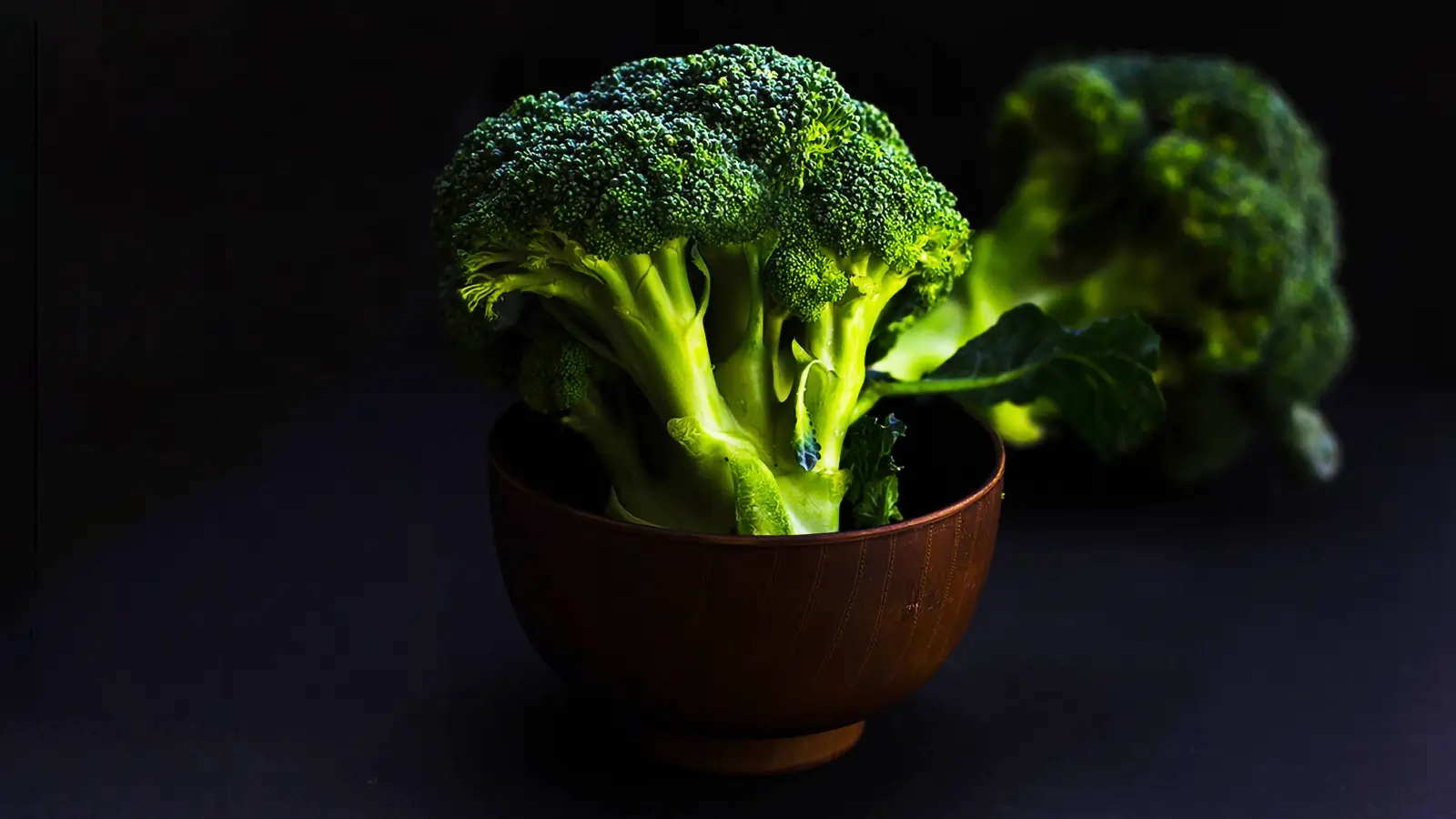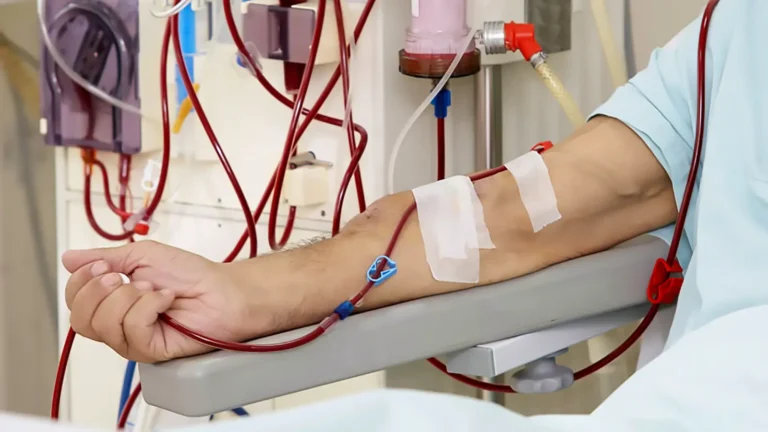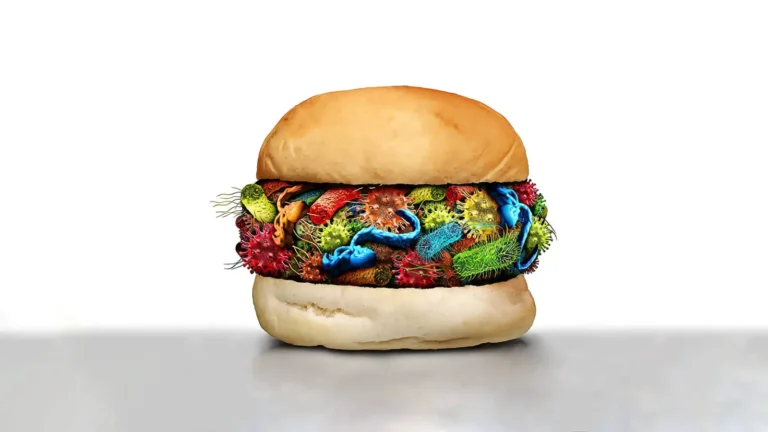Alcohol health risks- The “French paradox”, “the wine”, and “in moderation”
Somehow we believe that one glass of wine is not all that bad, or even worse, we believe in alcohol health-promoting myth because of the grape’s antioxidants.
Milos Pokimica
Written By: Milos Pokimica
Medically Reviewed by: Dr. Xiùying Wáng, M.D.
Updated June 9, 2023We all know that alcohol is a bad and toxic substance for us and that alcohol health risks are real. But somehow we all believe that one glass of wine is not all that bad and actually is good and somehow health-promoting because of all of its antioxidants from the grapes. A pregnant woman will avoid drinking alcohol because of fetal development but usually, people are just not aware that alcohol does much more than killing our brain cells. It is a genotoxic, cancerous, pro-inflammatory mutagen.
The developing fetus and adolescent brain are primarily vulnerable to the toxic effects of alcohol and this is the reason why it is absolutely forbidden in pregnancy. If the mother drinks during pregnancy that will have an adverse effect on fetal development. The most severe condition in this spectrum of diseases is known as fetal alcohol syndrome (FAS).
Alcohol is something as known as a teratogen, and that means that it prevents the cells from developing by blocking maternal and fetal enzymes.
“Alcohol can act as a teratogen through numerous methods including reactive oxygen species (generated as byproducts of CYP2E1), decreased endogenous antioxidant levels, mitochondrial damage, lipid peroxidation, disrupted neuronal cell-cell adhesion, placental vasoconstriction, and inhibition of cofactors required for fetal growth and development.”
(Gupta et al., 2016)
In healthy adults, alcohol restricts to some extent the production of vasopressin (ADH) (Harper et al., 2018). It is a hormone produced in the hypothalamus and is secreted from the posterior pituitary gland. Dehydration after alcohol consumption is a consequence of this restriction. This might be a reason for the hangover to a smaller extent. Hangover just by itself is not dehydration. You might try to prevent a hangover the morning after by consuming large amounts of fluid during binge drinking but that would not completely prevent the restriction of vasopressin and dehydration.
“Also, markers of dehydration (e.g., vasopressin) were not significantly related to hangover severity. Analyses showed that concentrations of various hormones, electrolytes, free fatty acids, triglycerides, lactate, ketone bodies, cortisol, and glucose were not significantly correlated with reported alcohol hangover severity. Some studies report a significant correlation between blood acetaldehyde concentration and hangover severity, but most convincing is the significant relationship between immune factors and hangover severity. The latter is supported by studies showing that hangover severity may be reduced by inhibitors of prostaglandin synthesis. Several factors do not cause alcohol hangovers but can aggravate their severity. These include sleep deprivation, smoking, congeners, health status, genetics, and individual differences.”
(Penning et al., 2010)
People who regularly drink more than one standard drink per day are at higher risk of long-term health conditions. Even if you do not feel the effect of the drink, you did yourself harm. And that is not all. Alcohol consumption releases excess GABA and dopamine. If too much of these neurotransmitters get released situation can change dramatically from feeling nice and relaxed to increased heart rate, shortness of breath, increased levels of both aggression and depression, high blood pressure, delusions, hallucinations, night terrors, spasms, and so on (Liang et al., 2014).
Excess drinking causes the liver to accumulate fat, which can lead to fatty liver disease especially if you are already obese.
“Alcoholic liver disease (ALD) is the most prevalent type of chronic liver disease worldwide. ALD can progress from alcoholic fatty liver (AFL) to alcoholic steatohepatitis (ASH), which is characterized by hepatic inflammation. Chronic ASH can eventually lead to fibrosis and cirrhosis and in some cases hepatocellular cancer (HCC). In addition, severe ASH (with or without cirrhosis) can lead to alcoholic hepatitis, which is an acute clinical presentation of ALD that is associated with liver failure and high mortality. Most individuals consuming >40 g of alcohol per day develop AFL; however, only a subset of individuals will develop more advanced disease.”
(Seitz et al., 2018)
All of these alcohol health risks are well known but what is not so known is that even just one drink a day may increase the person’s risk for breast cancer by 4% because alcohol has a pro-estrogenic influence on the cells. Cancers that are responsive to hormones will also have a positive response to substances that influence hormones like for instance breast cancer. The increase in the order of 4% is done just by one small alcoholic drink per day (Shield et al., 2016).
If you drink three or more drinks a day, then your breast cancer risk goes up by, imagine this 40-50 percent.
Around 5 percent of all breast cancers in the US are attributed just to alcohol consumption and around 1 to 2 percent to light drinks alone. Combine this with the pro-estrogenic effects of POPs and plastic and all other xenoestrogens.
Besides breast cancer, 3.6% of other types of cancers are caused directly by chronic alcohol drinking, and these include the liver, the colorectum, and of the upper digestive tract (Bagnardi et al., 2013).
The International Agency for Research on Cancer (IARC) official UN body under the WHO considers ethanol a carcinogen to humans (Group 1). Besides ethanol, alcoholic beverages are multicomponent mixtures that can be containing several different carcinogenic compounds, such as acetaldehyde, aflatoxins, and ethyl carbamate. Ethanol is considered the most important carcinogen in alcoholic beverages, but there are other carcinogenic compounds as well.
The biological mechanisms by which alcohol intake increases the risk of cancer are not fully understood, but the primary mechanisms are likely to include a genotoxic effect of acetaldehyde, the induction of cytochrome P450 2E1 and associated oxidative stress, increased estrogen concentration, a role as a solvent for tobacco carcinogens, changes in folate metabolism, and changes in DNA repair.
For cancers of the digestive tract, especially those of the upper digestive tract, acetaldehyde (a derivate from alcohol that creates itself almost instantly when you sip on an alcoholic beverage) has been highlighted as a likely and important causal pathway. That metabolite is so toxic it is terrible.
For colorectal cancer, in addition to the genotoxic effect of acetaldehyde, there may be the involvement of folate: alcohol may act through folate metabolism or synergistically with low folate intake. Bacteria in our mouths oxidase ethanol into acetaldehyde almost instantaneously. Even a single sip is enough to cause high concentrations of acetaldehyde even without drinking, there is still an effect for example if you use alcoholic mouthwash. In this study (Linderborg et al., 2011) they found that holding a single sip of a strong alcoholic beverage for 5 seconds in the mouth and then spitting it out formed carcinogenic concentrations of acetaldehyde in the oral cavity instantly and the exposure continued for at least 10 min. So even washing your mouth with it is cancer-promoting.
There is also more to booze than just cancer. Alcohol rises lipids in the blood and also blood pressure. That will increase the risk of raised cholesterol, hypertension, stroke, and heart attack. It causes cardiomyopathy, and myocarditis and it also causes arrhythmia.
However, wait red wine has long been considered the elixir of heart health. We can all remember the scam named French Paradox.

French paradox was a love affair for everyone. In 1980 some French scientists tried to explain the correlation between high fat intake, especially saturated one from lots of meat and dairy products with lower heart attack rates in France especially when compared with one in Britain for example. It was statistical proof that cholesterol and all of meat and eggs and cheese do not cause heart disease and even if they do we can just add some nice red wine after the meal and what more do you want. Red wine is some kind of superfood. However, correlation is not causation, and one factor that had been ignored was, and I will write it again was, the past tense, that the French diet was generally healthier than other nations at the time. They had been eating four times more vegetables than counterpart countries and it was a form of a semi-Mediterranean diet. However, it turned out to be no paradox at all. It turned out that French physicians underreport heart disease on death certificates as much as 20% according to WHO. If we correct that statistical error, then no benefit of wine. The only good thing in wine is the phytochemicals from grapes so if you want these, the better option will be just regular grape juice and the even better option will be to eat fresh grapes.
Some other studies support alcohol health risks correlated with heart disease connection. Low levels of alcohol consumption can raise levels of high-density lipoprotein (good cholesterol), and HDL. So they had the idea that moderate drinking protects against cardiovascular disease by raising HDL, which would make sense biologically if you already have razed levels of cholesterol. They need this kind of study to calm people down from time to time. Alternatively, we will stop eating animal products if we fear cholesterol. Also, some small amounts of alcohol consumption like a glass of wine a day had been found to have beneficial changes in factors that influence blood clotting, and that will mean fewer chances for thrombosis of any sort like blood clots in the brain, block arteries in the heart and so on. Blood clots are the most common kind of stroke. Booze is what chemists call amphiphilic. It interacts favorably with both polar and non-polar molecules same as any other amphiphilic substance like soaps and detergents. So if you add rubbing alcohol to grease, the alcohol starts mixing with it. It blends in by going in between the long fatty chains. It does the same thing in the bloodstream.
References:
- Gupta, K. K., Gupta, V. K., & Shirasaka, T. (2016). An Update on Fetal Alcohol Syndrome-Pathogenesis, Risks, and Treatment. Alcoholism, clinical and experimental research, 40(8), 1594–1602. https://doi.org/10.1111/acer.13135
- Caputo, C., Wood, E., & Jabbour, L. (2016). Impact of fetal alcohol exposure on body systems: A systematic review. Birth defects research. Part C, Embryo today : reviews, 108(2), 174–180. https://doi.org/10.1002/bdrc.21129
- Harper, K. M., Knapp, D. J., Criswell, H. E., & Breese, G. R. (2018). Vasopressin and alcohol: a multifaceted relationship. Psychopharmacology, 235(12), 3363–3379. https://doi.org/10.1007/s00213-018-5099-x
- Penning, R., van Nuland, M., Fliervoet, L. A., Olivier, B., & Verster, J. C. (2010). The pathology of alcohol hangover. Current drug abuse reviews, 3(2), 68–75. https://doi.org/10.2174/1874473711003020068
- Liang, J., & Olsen, R. W. (2014). Alcohol use disorders and current pharmacological therapies: the role of GABA(A) receptors. Acta pharmacologica Sinica, 35(8), 981–993. https://doi.org/10.1038/aps.2014.50
- Seitz, H. K., Bataller, R., Cortez-Pinto, H., Gao, B., Gual, A., Lackner, C., Mathurin, P., Mueller, S., Szabo, G., & Tsukamoto, H. (2018). Alcoholic liver disease. Nature reviews. Disease primers, 4(1), 16. https://doi.org/10.1038/s41572-018-0014-7
- Shield, K. D., Soerjomataram, I., & Rehm, J. (2016). Alcohol Use and Breast Cancer: A Critical Review. Alcoholism, clinical and experimental research, 40(6), 1166–1181. https://doi.org/10.1111/acer.13071
- Bagnardi, V., Rota, M., Botteri, E., Tramacere, I., Islami, F., Fedirko, V., Scotti, L., Jenab, M., Turati, F., Pasquali, E., Pelucchi, C., Bellocco, R., Negri, E., Corrao, G., Rehm, J., Boffetta, P., & La Vecchia, C. (2013). Light alcohol drinking and cancer: a meta-analysis. Annals of oncology : official journal of the European Society for Medical Oncology, 24(2), 301–308. https://doi.org/10.1093/annonc/mds337
- Linderborg, K., Salaspuro, M., & Väkeväinen, S. (2011). A single sip of a strong alcoholic beverage causes exposure to carcinogenic concentrations of acetaldehyde in the oral cavity. Food and chemical toxicology : an international journal published for the British Industrial Biological Research Association, 49(9), 2103–2106. https://doi.org/10.1016/j.fct.2011.05.024
- Criqui, M. H., & Ringel, B. L. (1994). Does diet or alcohol explain the French paradox?. Lancet (London, England), 344(8939-8940), 1719–1723. https://doi.org/10.1016/s0140-6736(94)92883-5
- Law, M., & Wald, N. (1999). Why heart disease mortality is low in France: the time lag explanation. BMJ (Clinical research ed.), 318(7196), 1471–1476. https://doi.org/10.1136/bmj.318.7196.1471
- Ferrières J. (2004). The French paradox: lessons for other countries. Heart (British Cardiac Society), 90(1), 107–111. https://doi.org/10.1136/heart.90.1.107
Related Posts
Do you have any questions about nutrition and health?
I would love to hear from you and answer them in my next post. I appreciate your input and opinion and I look forward to hearing from you soon. I also invite you to follow us on Facebook, Instagram, and Pinterest for more diet, nutrition, and health content. You can leave a comment there and connect with other health enthusiasts, share your tips and experiences, and get support and encouragement from our team and community.
I hope that this post was informative and enjoyable for you and that you are prepared to apply the insights you learned. If you found this post helpful, please share it with your friends and family who might also benefit from it. You never know who might need some guidance and support on their health journey.
– You Might Also Like –

Learn About Nutrition
Milos Pokimica is a doctor of natural medicine, clinical nutritionist, medical health and nutrition writer, and nutritional science advisor. Author of the book series Go Vegan? Review of Science, he also operates the natural health website GoVeganWay.com
Medical Disclaimer
GoVeganWay.com brings you reviews of the latest nutrition and health-related research. The information provided represents the personal opinion of the author and is not intended nor implied to be a substitute for professional medical advice, diagnosis, or treatment. The information provided is for informational purposes only and is not intended to serve as a substitute for the consultation, diagnosis, and/or medical treatment of a qualified physician or healthcare provider.NEVER DISREGARD PROFESSIONAL MEDICAL ADVICE OR DELAY SEEKING MEDICAL TREATMENT BECAUSE OF SOMETHING YOU HAVE READ ON OR ACCESSED THROUGH GoVeganWay.com
NEVER APPLY ANY LIFESTYLE CHANGES OR ANY CHANGES AT ALL AS A CONSEQUENCE OF SOMETHING YOU HAVE READ IN GoVeganWay.com BEFORE CONSULTING LICENCED MEDICAL PRACTITIONER.
In the event of a medical emergency, call a doctor or 911 immediately. GoVeganWay.com does not recommend or endorse any specific groups, organizations, tests, physicians, products, procedures, opinions, or other information that may be mentioned inside.
Editor Picks –
Milos Pokimica is a health and nutrition writer and nutritional science advisor. Author of the book series Go Vegan? Review of Science, he also operates the natural health website GoVeganWay.com
Latest Articles –
Top Health News — ScienceDaily
- The overlooked nutrition risk of Ozempic and Wegovyon February 4, 2026
Popular weight-loss drugs like Ozempic and Wegovy can dramatically curb appetite, but experts warn many users are flying blind when it comes to nutrition. New research suggests people taking these medications may not be getting enough guidance on protein, vitamins, and overall diet quality, increasing the risk of muscle loss and nutrient deficiencies.
- A 25-year study found an unexpected link between cheese and dementiaon February 4, 2026
A massive Swedish study tracking nearly 28,000 people for 25 years found an unexpected link between full-fat dairy and brain health. Among adults without a genetic risk for Alzheimer’s, eating more full-fat cheese was associated with a noticeably lower risk of developing the disease, while higher cream intake was tied to reduced dementia risk overall. The findings challenge decades of low-fat dietary advice but come with important caveats.
- MIT’s new brain tool could finally explain consciousnesson February 4, 2026
Scientists still don’t know how the brain turns physical activity into thoughts, feelings, and awareness—but a powerful new tool may help crack the mystery. Researchers at MIT are exploring transcranial focused ultrasound, a noninvasive technology that can precisely stimulate deep regions of the brain that were previously off-limits. In a new “roadmap” paper, they explain how this method could finally let scientists test cause-and-effect in consciousness research, not just observe […]
- Why heart disease risk in type 2 diabetes looks different for men and womenon February 4, 2026
Scientists are digging into why heart disease risk in type 2 diabetes differs between men and women—and sex hormones may be part of the story. In a large Johns Hopkins study, men with higher testosterone had lower heart disease risk, while rising estradiol levels were linked to higher risk. These hormone effects were not seen in women. The results point toward more personalized approaches to heart disease prevention in diabetes.
- Sound machines might be making your sleep worseon February 4, 2026
Sound machines may not be the sleep saviors many believe. Researchers found that pink noise significantly reduced REM sleep, while simple earplugs did a better job protecting deep, restorative sleep from traffic noise. When pink noise was combined with outside noise, sleep quality dropped even further. The results suggest that popular “sleep sounds” could be doing more harm than good—particularly for kids.
- This unexpected plant discovery could change how drugs are madeon February 3, 2026
Plants make chemical weapons to protect themselves, and many of these compounds have become vital to human medicine. Researchers found that one powerful plant chemical is produced using a gene that looks surprisingly bacterial. This suggests plants reuse microbial tools to invent new chemistry. The insight could help scientists discover new drugs and produce them more sustainably.
- A hidden cellular process may drive aging and diseaseon February 3, 2026
As we age, our cells don’t just wear down—they reorganize. Researchers found that cells actively remodel a key structure called the endoplasmic reticulum, reducing protein-producing regions while preserving fat-related ones. This process, driven by ER-phagy, is tied to lifespan and healthy aging. Because these changes happen early, they could help trigger later disease—or offer a chance to stop it.
PubMed, #vegan-diet –
- Diet type and the oral microbiomeon February 2, 2026
CONCLUSION: The diet-oral microbiome-systemic inflammation axis is bidirectional and clinically relevant. Understanding both direct ecological regulation and indirect metabolic effects is essential to support precision nutrition strategies aimed at maintaining oral microbial balance and systemic inflammatory risk mitigation.
- Consensus document on healthy lifestyleson January 22, 2026
Proteins are a group of macronutrients that are vital to our lives, as they perform various functions, including structural, defensive and catalytic. An intake of 1.0-1.2 g/kg/body weight per day would be sufficient to meet our needs. Carbohydrate requirements constitute 50 % of the total caloric value and should be obtained mainly in the form of complex carbohydrates. In addition, a daily intake of both soluble and insoluble fiber is necessary. Regular consumption of extra virgin olive oil […]
- Vitamin B12 and D status in long-term vegetarians: Impact of diet duration and subtypes in Beijing, Chinaon January 21, 2026
CONCLUSIONS: This study reveals a dual challenge among Beijing long-term vegetarians: vitamin B12 deficiency was strongly associated with the degree of exclusion of animal products from the diet (veganism), while vitamin D deficiency was highly prevalent and worsened with longer diet duration. The near-universal vitamin D deficiency observed in this study suggests that, in the Beijing context, the risk may extend beyond dietary choice, potentially reflecting regional environmental factors;…
- Nutritional evaluation of duty meals provided to riot police forces in Germanyon January 13, 2026
Background: The primary role of the German riot police is maintaining internal security. Due to challenging working conditions, riot police forces face an elevated risk of various diseases. During duty, forces are provided with meals. A balanced diet can reduce the risk of some of these diseases and contribute to health-promoting working conditions. Aim: First evaluation of the nutritional quality of duty meals in Germany based on German Nutrition Society recommendations (DGE). Methods: In…
- Iodineon January 1, 2006
Iodine is an essential trace nutrient for all infants that is a normal component of breastmilk. Infant requirements are estimated to be 15 mcg/kg daily in full-term infants and 30 mcg/kg daily in preterm infants.[1] Breastmilk iodine concentration correlates well with maternal urinary iodine concentration and may be a useful index of iodine sufficiency in infants under 2 years of age, but there is no clear agreement on a value that indicates iodine sufficiency, and may not correlate with […]
Random Posts –
Featured Posts –
Latest from PubMed, #plant-based diet –
- From paddy soil to dining table: biological biofortification of rice with zincby Lei Huang on February 4, 2026
One-third of paddy soils are globally deficient in zinc (Zn) and 40% of Zn loss in the procession from brown rice to polished rice, which results in the global issue of hidden hunger, e.g., the micronutrient deficiencies in the rice-based population of developing countries. In the recent decades, biofortification of cereal food crops with Zn has emerged as a promising solution. Herein, we comprehensively reviewed the entire process of Zn in paddy soil to human diet, including the regulatory…
- Molecular Characterization of Tobacco Necrosis Virus A Variants Identified in Sugarbeet Rootsby Alyssa Flobinus on February 3, 2026
Sugarbeet provides an important source of sucrose; a stable, environmentally safe, and low-cost staple in the human diet. Viral diseases arising in sugarbeet ultimately impact sugar content, which translates to financial losses for growers. To manage diseases and prevent such losses from occurring, it is essential to characterize viruses responsible for disease. Recently, our laboratory identified a tobacco necrosis virus A variant named Beta vulgaris alphanecrovirus 1 (BvANV-1) in sugarbeet…
- Nutrition in early life interacts with genetic risk to influence preadult behaviour in the Raine Studyby Lars Meinertz Byg on February 3, 2026
CONCLUSIONS: Nutrition in early life and psychiatric genetic risk may interact to determine lasting child behaviour. Contrary to our hypothesis, we find dietary benefits in individuals with lower ADHD PGS, necessitating replication. We also highlight the possibility of including genetics in early nutrition intervention trials for causal inference.
- Effect of the gut microbiota on insect reproduction: mechanisms and biotechnological prospectsby Dilawar Abbas on February 2, 2026
The insect gut microbiota functions as a multifunctional symbiotic system that plays a central role in host reproduction. Through the production of bioactive metabolites, gut microbes interact with host hormonal pathways, immune signaling, and molecular regulatory networks, thereby shaping reproductive physiology and fitness. This review summarizes recent advances in understanding how gut microbiota regulate insect reproduction. Accumulating evidence demonstrates that microbial metabolites…
- Rationale and design of a parallel randomised trial of a plant-based intensive lifestyle intervention for diabetes remission: The REmission of diabetes using a PlAnt-based weight loss InteRvention…by Brighid McKay on February 2, 2026
CONCLUSIONS: This trial will provide high-quality clinical evidence on the use of plant-based ILIs to address the epidemics of obesity and diabetes to inform public health policies and programs in Canada and beyond.
- Diet type and the oral microbiomeby Daniel Betancur on February 2, 2026
CONCLUSION: The diet-oral microbiome-systemic inflammation axis is bidirectional and clinically relevant. Understanding both direct ecological regulation and indirect metabolic effects is essential to support precision nutrition strategies aimed at maintaining oral microbial balance and systemic inflammatory risk mitigation.
